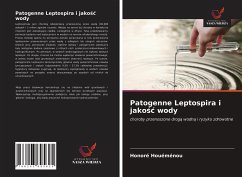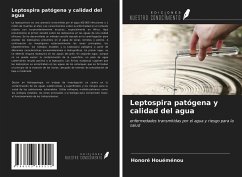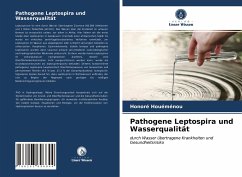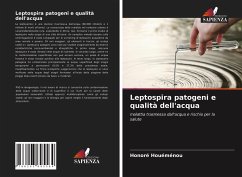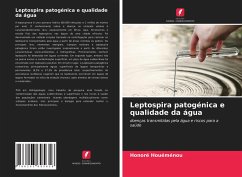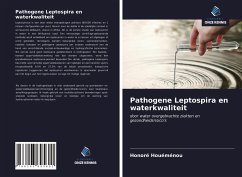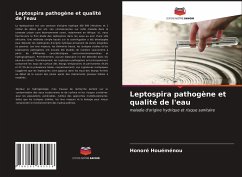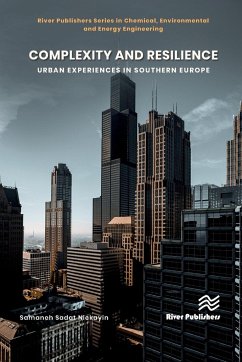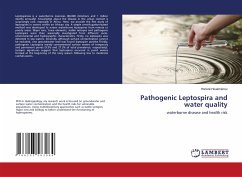
Pathogenic Leptospira and water quality
waterborne disease and health risk
Versandkostenfrei!
Versandfertig in 6-10 Tagen
27,99 €
inkl. MwSt.

PAYBACK Punkte
14 °P sammeln!
Leptospirosis is a waterborne zoonosis (60,000 infections and 1 million deaths annually). Knowledge about the disease in the urban context is surprisingly rare, especially in Africa. Here, we provide the first study of leptospires in waters within an African city. A simple centrifugation-based method was developed to screen waterborne leptospires from remote or poorly areas. Major ions, trace elements, stable isotopes and pathogenic Leptospira were then seasonally investigated from different socio-environmental and hydrographic characteristics. Firstly, no leptospire was detected in tap waters...
Leptospirosis is a waterborne zoonosis (60,000 infections and 1 million deaths annually). Knowledge about the disease in the urban context is surprisingly rare, especially in Africa. Here, we provide the first study of leptospires in waters within an African city. A simple centrifugation-based method was developed to screen waterborne leptospires from remote or poorly areas. Major ions, trace elements, stable isotopes and pathogenic Leptospira were then seasonally investigated from different socio-environmental and hydrographic characteristics. Firstly, no leptospire was detected in tap waters. Secondly, although surface contamination cannot be excluded, one groundwater well was found leptospire positive.Thirdly, pathogenic Leptospira mainly contaminated surface waters of temporary and permanent ponds (9.5% and 27.3% of total prevalence, respectively). Isotopic signatures suggest that leptospires occurred in pond waters formed at the beginning of the rainy season following low tomoderate rainfall events.




